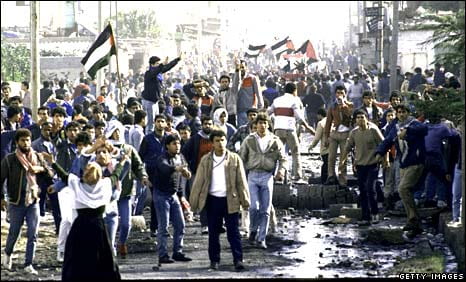
I have written a CPU essay on Dan Almagor’s poem, “We Shoot Children Too, Don’t We,” with the main effect of depicting the cruel nature of humans in order to pursue power.
Poem: https://www.scoop.co.nz/stories/HL0403/S00141/poem-we-shoot-children-too-dont-we.htm
The Brutality of Humanity
| Over the centuries, wars have been raged, societies have collapsed, but most horrendously, innocent people have been murdered. All of this brutality and savagery has stemmed from just one cause: the desire of humans to attain power and dominance over all. This theme of inhumanity is portrayed in the poem, “We Shoot Children Too, Don’t We”, as the poet describes his personal experiences with witnessing the cruel atrocities that his country inflicts upon the Palestinians. The poet, Dan Almagor explores the idea that when an individual attempts to exert control over other people, then that will cause them to commit terrible crimes against humanity, which will strip the innocence of all individuals involved. Fortunately, through the adversity and struggles that the persecuted have to face, this may eventually result in freedom from oppression for them. | 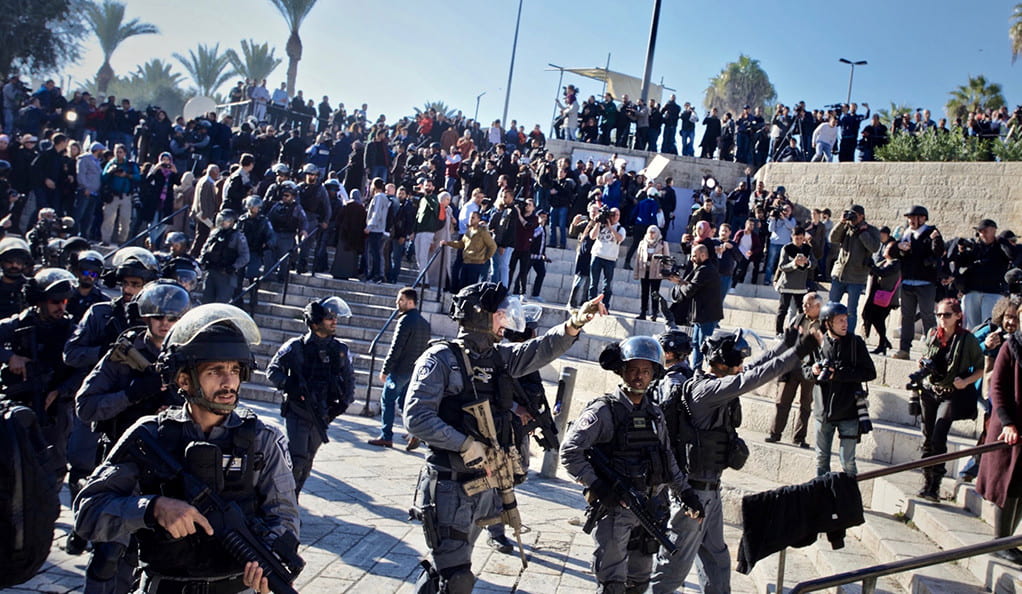 |
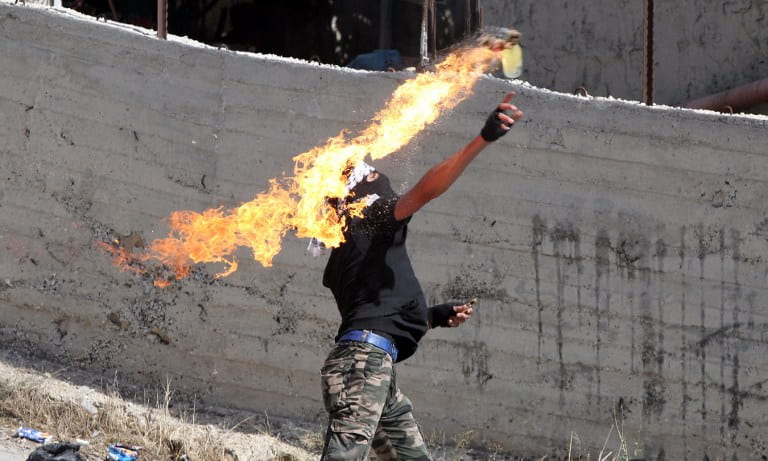  |
Many people believe that through hard work and dedication, anyone can achieve success in life. While this statement is mostly true, individuals must strive to understand that regardless of how wealthy or powerful one may be, no one should deflect from the path of morality and pursue unrighteousness. Ultimately, only the innocent and virtuous will achieve true success in life. Dan Almagor’s poem, “We Shoot Children Too, Don’t We”, wholeheartedly emphasizes upon this fact, as Dan immediately introduces the poem by stating, in stanza one, that “Most of these people truly desire to raise their kids not to throw stones or molotov cocktails, but to study in peace, to play in peace…” This insightful quote summarizes the living conditions that these helpless children have to bear, as they are forced to constantly fight for their lives and freedom, rather than living in peace. Ideally, a person’s childhood should be filled with cherished moments of their life, as they should be expanding their knowledge and skills day by day and learning more about the world around them. By having to constantly fight for their lives, these children are being exposed to the dark side of humanity at a very young age, and this could severely affect them as they grow up. Dan enhances this idea of a loss of naivety in children through the use of stating the objects, “stones” and “molotov cocktails”, as these items were used during the 1980s protest against Israel by the Palestinians, which provides a greater insight into the hardships that these children have to undergo. This belief is also reiterated many times throughout the poem to emphasize the gravity of the situation that Dan is describing. Many children in third-world nations, not only in Israel and Palestine, also deal with excruciating hardships, and may not be given the opportunity to enjoy their childhood, pursue an education, and live a happy and successful life. They are constantly oppressed and forced to partake in certain acts that most of them do not want to do. An example of such a brutal task is the use of child soldiers in these countries. Similar to the ideas present in this quote about children throwing “stones” and “molotov cocktails”, many youths are compelled to fight in conflicts for their oppressors and are constantly risking their lives on the battlefield rather than enjoying their childhood and innocence. The reality of a loss of humanity in individuals is also evident later in the poem where Dan states that “They are as human as we are, as we are. At least as human as we used to be.” This analytical quote is said in the context of the poet criticizing the Israeli government for acting inhumanely by persecuting the Palestinians, whom he believes should be treated equally and given more rights and freedoms. Essentially, this quote itself represents the overarching theme of the poem, as it implies the inhumanity and barbarity that are exposed within people by oppressing others. The phrase, “as human as we are”, portrays a simile, which signifies that the poet is comparing the perpetrators with humans. In a way, this emphasizes the fact that the poet believes that these people have distanced themselves from humanity and are acting savagely. However, the poet is optimistic about this fundamental idea of equality, as he believes that morality will always triumph over immorality since according to him, “This is how history works.” Throughout history, other superpowers have also had oppressive leaders which acted atrociously. An example of such, which many individuals are familiar with, is the Holocaust. The Nazis used to act in an immoral manner by persecuting a countless number of Jews, many of whom have now found a home in Israel, whereas the Nazis responsible for these horrible crimes have been justly punished. Now, the Israeli government is pushing an agenda of hatred against the Palestinians and are partaking in the same acts which the Nazis did to them, instead of attempting to establish peace and unity. Similar to the horrific events that the poet is describing, I have also been on the receiving end of injustice when I was in grade two, albeit to a much lesser extent. |
| It is quite evident in society, especially with the current Black Lives Matter (BLM) movement, that racism is a huge problem that not only causes divisions in society but is also the root cause of terrible criminal acts. Back when I was in the second grade, I had recently moved to a new school and was ecstatic at the opportunity that it was a new year for me and that I would hopefully be able to blend in and make new friends. Being cognizant of how young and innocent I was at this time, I was not aware of the extent to which racism is deeply rooted in society and could not comprehend the fact that individuals would spread hate towards each other based on physical traits that they cannot control. Anyhow, when I started the school year, I at first did not encounter any troubles and did make a few friends whom I am still in contact with to this day, despite going to a different school as them now. However, there was this one group of four Caucasian children who, from the beginning of the year, would seem to look at me as if I did not belong in this school. At the end of one school day, which I vividly remember, they came up to me and blatantly told me out of nowhere to go back to my “dirty” country and that I am not welcome here. I can indeed say that I was shocked that they had made these rude comments, especially since I had done nothing to them throughout the school year. All I had known at that time was that they insulted me by stating the word, “dirty”, so I punched the leader of the group in the face. In hindsight, I should not have responded with physical aggression, but given that I was much younger at the time, I had acted out of anger. Both of us were called down to the office and what surprised me was that despite the fact that the Caucasian child started the conflict, I was given detention, while he was only given a simple reprimanding. As we exited the office, that child did not even apologize to me and, in fact, just gave me a smug look. Looking back at this experience, I am completely aware that this was indeed an act of racism where those Caucasian children were attempting to exert the dominance of their “race” over mine, as my culture was and still is a minority in this country. I firmly believe that it was this specific event that caused me to lose a part of my innocence because I had been exposed to such a huge and depressing problem at such a young age, and it had altered my perspective on this world to a great extent. Even now, I will get the occasional derogatory comments thrown at me based on my race, but I have learned to just ignore them. At the end of the day, I just hope that every persecuted person out there will soon achieve true equality. | 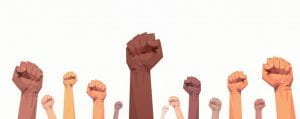 |
It is known that when pesticides are applied, they can kill off harmful weeds, allowing the beneficial plants to grow to a greater extent. However, too much pesticide could cause even these helpful plants to be negatively affected, leading to a decline in products for every species. However, if a situation like this were to ever come into the spotlight, moral individuals would strive to take action for this to improve the lives of theirs and the others around them. Similarly, a little oppression such as strict rules are always needed to maintain law and order in society, but when an individual or a group of individuals strive to take control and domination to extreme lengths, brutality can often result, which will take advantage of the naivety of many individuals. However, through the hard work and effort of many righteous individuals, justice can surely be served. This phenomenon is highlighted throughout the entirety of Dan Almagor’s poem, “We Shoot Children Too, Don’t We,” as he makes a brave, albeit humble, attempt to draw attention towards the inhumanity and brutality that is present throughout Israel and Palestine. I also hope to continue fighting with the struggles that I experience in my life, and I actively support the BLM and other anti-racism movements, as everyone deserves to be given equal rights and freedoms. At the end of the day, there is one question that everyone, regardless of what culture or religion they belong to, has to answer and that is: to what extent are they willing to renounce power, desire, and favoritism, for the opportunity to create a loving and peaceful world for all?
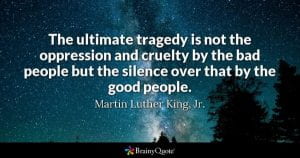

Dear Anish,
I loved reading your piece as it was very detailed and clearly you have put a lot of time into the piece. A thing that I liked was that you were able to bring in a contemporary example into your piece as well as a personal memory, that I also relate to, as it helps me connect with your piece that much more. A glow would be to use more images as there was some open space that could have been used to improve the aesthetics of the piece. Other than that it was a great read!
Sincerely,
Japjot
Dear Japjot,
I am glad that you enjoyed reading my responses! I agree that I have put in a lot of detail into this blog post and I understand that adding more images could aid in enhancing the main idea of it. Once again, I would like to thank you for reading my responses and thoughtfully commenting on it!
Sincerely,
Anish
Dear Anish,
Reading your blog made me think about the person I am today. By including political events made your writing flow better and connected back to your title. What I enjoyed the most about this post is you taking each tragic event and analyzing your connection, especially the black lives matter movement and being mistreated in Grade two. I appreciate your courage. The writing has a meaningful insight into it, which builds the people’s interest in reading your piece.
On the talk of making it more interesting, for the future, like Japjot said, maybe consider adding more images and also try to orient them in a more visually appealing manner. In other words, try to arrange them so that the reader can be more engaged throughout the post.
Nevertheless, my concern does not stop your powerful message about injustice. Thank you for sharing this post and. I wish you the best of luck in your future courses and life in general. I am sure you will be successful because of your empathy towards other people and your knowledge. I am curious about what you will do for the final blog.
Kind Regards,
Armaan
Dear Armaan,
I am glad that you enjoyed reading my responses! I agree that my writing was very insightful and I understand that adding more visuals and placing them in an appealing manner could enhance the ideas of my blog post. Once again, I would like to thank you for your insightful comments on my blog post!
Sincerely,
Anish